Table of Contents
In this post, we will explore the diverse types of glass used in construction, understand the reasons behind its widespread use, delve into its common forms, and uncover the essential properties that make it a standout material.
Types of Glass Used in Construction
1. Sheet Glass
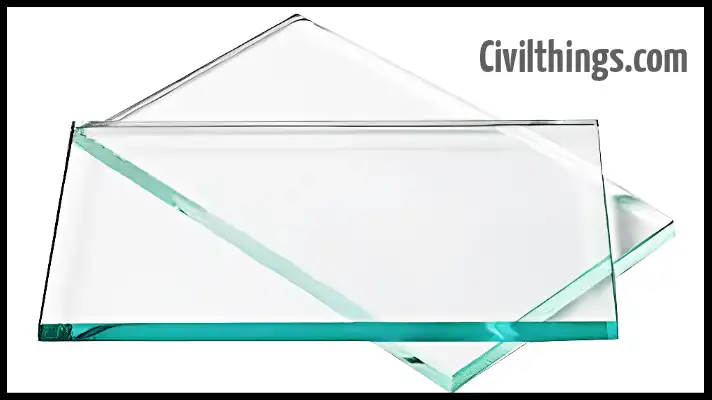
Basic, smooth-surfaced glass primarily used for window glazing.
2. Float Glass
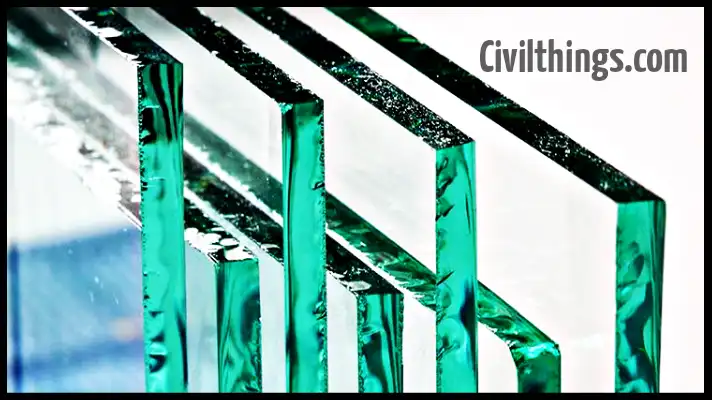
Manufactured through a floating process, resulting in a distortion-free and smooth surface.
3. Laminated Glass
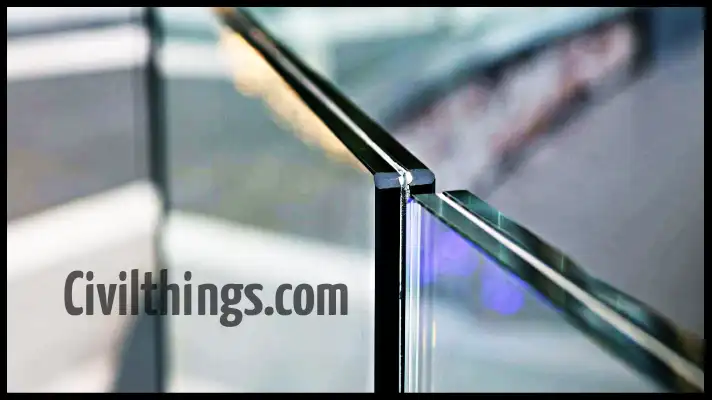
Composed of multiple layers with an interlayer for safety and security benefits.
4. Shatterproof Glass
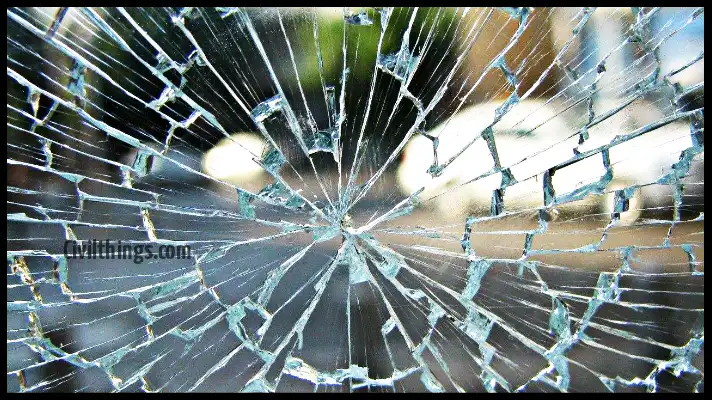
Designed to minimize breakage and injury, often featuring a layer of plastic between glass layers.
5. Energy-efficient Glass
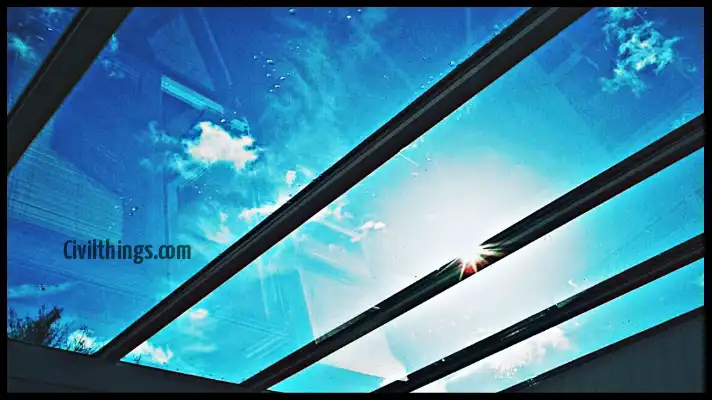
Includes coatings to improve insulation and reduce heat transfer, enhancing energy efficiency.
6. Extra-clean / Self-cleaning Glass

Features a special coating for repelling dirt and water, ensuring a cleaner appearance with minimal maintenance.
7. Chromatic Glass
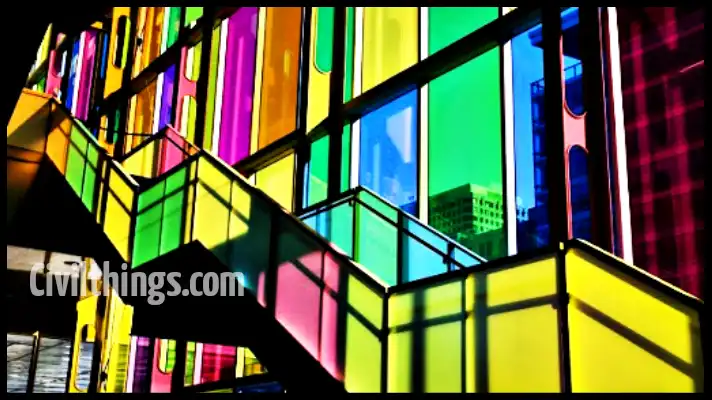
Changes color based on external factors like light or temperature, adding dynamic aesthetics to architectural designs.
8. Patterned Glass
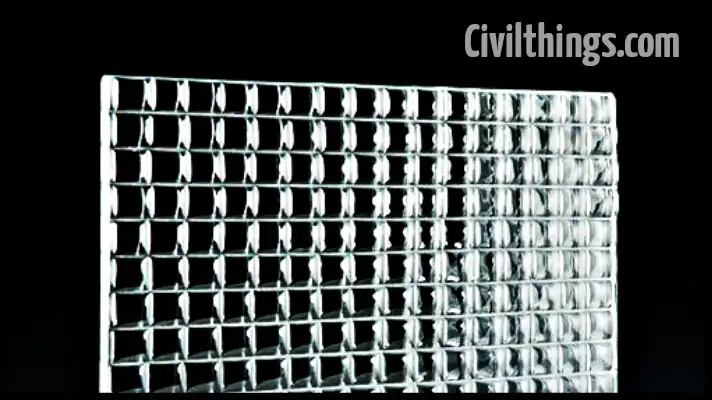
Embossed or patterned to enhance privacy and diffuse light.
9. Tinted Glass
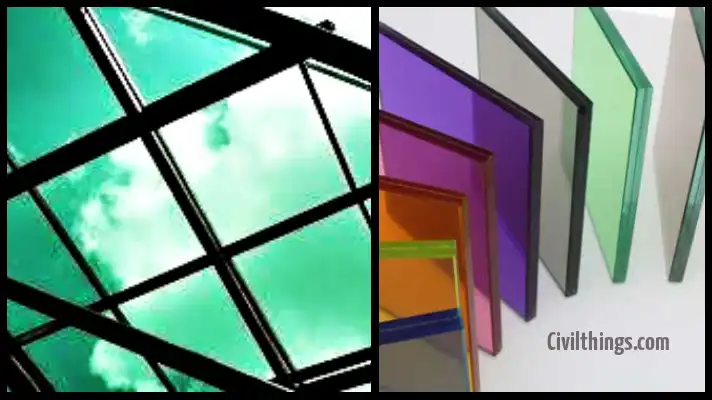
Contains colored tint to reduce glare and control light penetration.
10. Toughened Glass
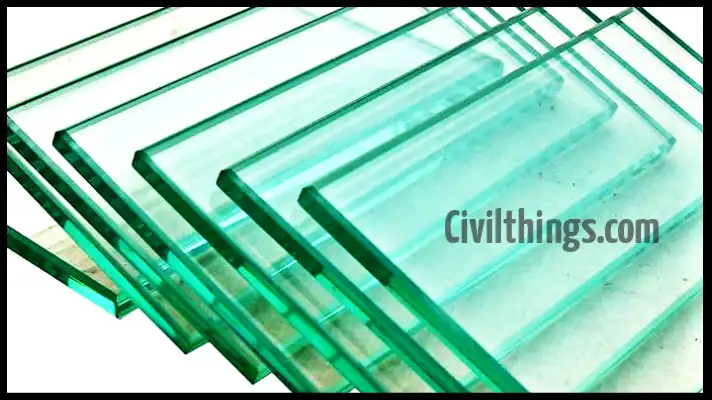
Heat-treated for increased strength and safety, shattering into small, harmless pieces upon breakage.
11. Wired Glass
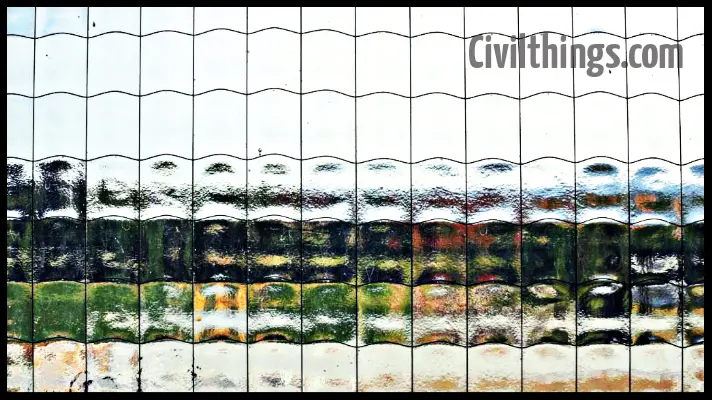
Embedded with a mesh of metal wires to enhance strength and prevent shattering.
12. Glass Blocks
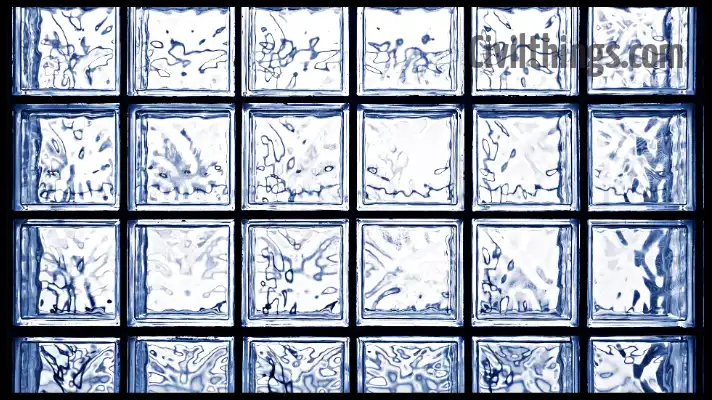
Hollow glass units used for aesthetic and structural purposes, providing unique design possibilities.
13. Glass Wool
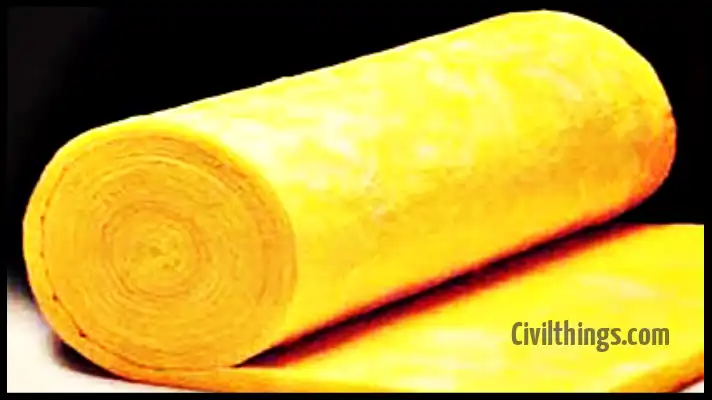
Insulating material made from recycled glass, used for thermal and acoustic insulation.
14. Insulated Glazed Units
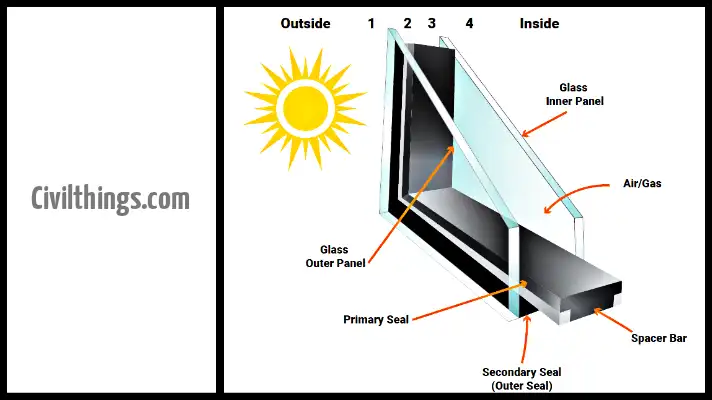
Double or triple glass panes separated by a vacuum or gas-filled space for enhanced insulation.
15. Mirrors
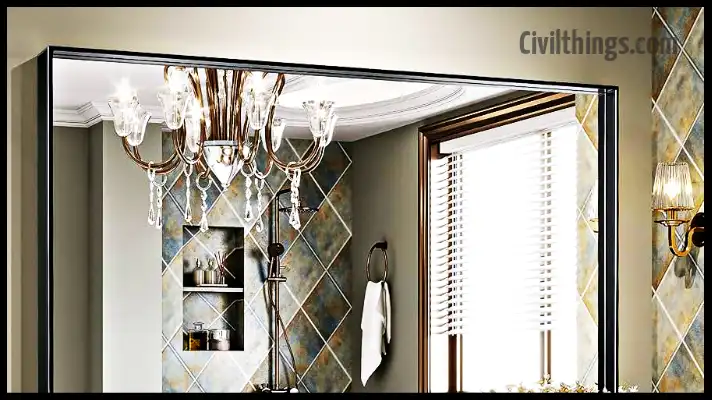
Used for reflection, creating the illusion of space, and enhancing interior design.
Why is Glass Used in Construction?
Glass serves various essential purposes in construction:
- Natural Light: Allows ample natural light, reducing the need for artificial lighting.
- Aesthetics: Enhances the visual appeal of buildings and interior spaces.
- Energy Efficiency: Certain types contribute to insulation and energy conservation.
- Versatility: Comes in various forms and can be used for windows, doors, facades, and decorative elements.
Most Common Glass Used in Construction
Float glass is the most commonly used type due to its clarity, versatility, and ease of manufacturing.
5 Properties of Glass
- Transparency: Allows light to pass through.
- Brittleness: Breaks into sharp fragments.
- Durability: Resistant to weather, corrosion, and chemical exposure.
- Thermal Insulation: Certain types provide effective insulation.
- Malleability: Can be molded into various shapes and sizes.
In conclusion, the diverse types of glass used in construction showcase the versatility and innovation in architectural design. Understanding the properties and applications of each type empowers architects and builders to create structures that are not only aesthetically pleasing but also functional and energy-efficient. Glass, in its many forms, continues to shape the way we experience and interact with the built environment.
FAQ RELATED CONSTRUCTION GLASS
What are the different types of glass used in construction?
There are several types of glass used in construction, including Sheet Glass, Float Glass, Laminated Glass, Shatterproof Glass, Energy-efficient Glass, Extra-clean / Self-cleaning Glass, Chromatic Glass, Patterned Glass, Tinted Glass, Toughened Glass, Wired Glass, Glass Blocks, Glass Wool, Insulated Glazed Units, and Mirrors.
Why is glass used in construction?
Glass is used in construction for various reasons, such as allowing natural light into buildings, enhancing aesthetics, contributing to energy efficiency, and providing versatility for different architectural designs.
What are the properties of glass?
The properties of glass include transparency (allowing light to pass through), brittleness (breaking into sharp fragments), durability (resistance to weather, corrosion, and chemicals), thermal insulation (certain types provide effective insulation), and malleability (can be molded into various shapes and sizes).
How is toughened glass different from regular glass?
Toughened glass undergoes a heat treatment process, making it stronger than regular glass. When it breaks, it shatters into small, relatively harmless pieces, reducing the risk of injury.
What is the role of mirrors in construction beyond reflection?
Mirrors in construction are not only used for reflection but also for creating the illusion of space and enhancing interior design. They can be strategically placed to improve lighting and aesthetics.
Manufacturing of Glass for Construction

Hi! I’m Sandip, a civil engineer who loves sharing about Civil Engineering & new ideas and tips. My blog helps you learn about engineering in a fun and easy way!


Comments are closed.